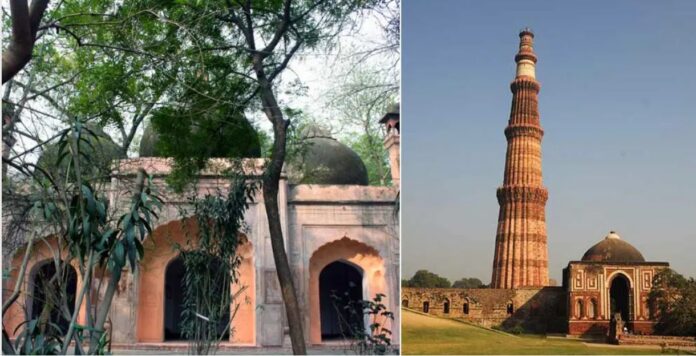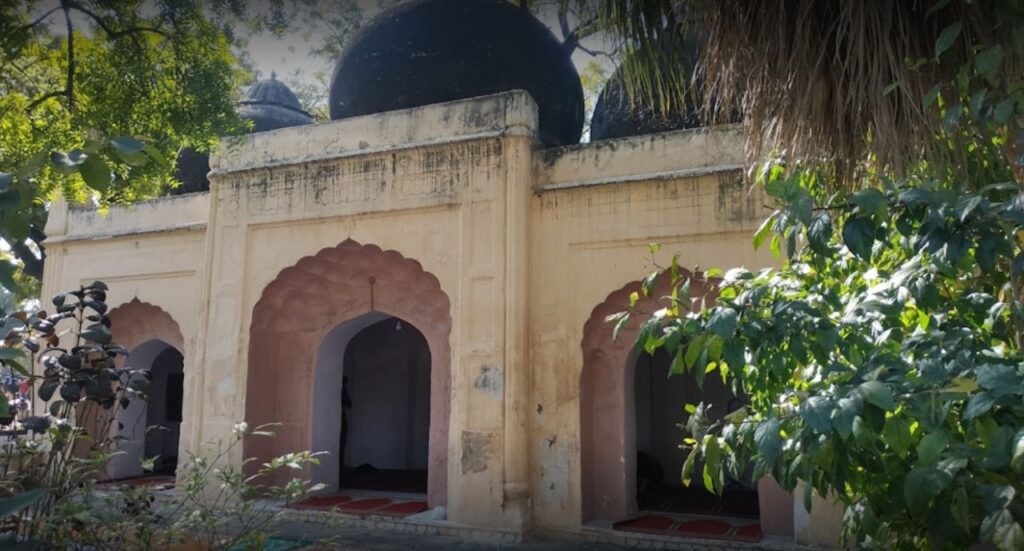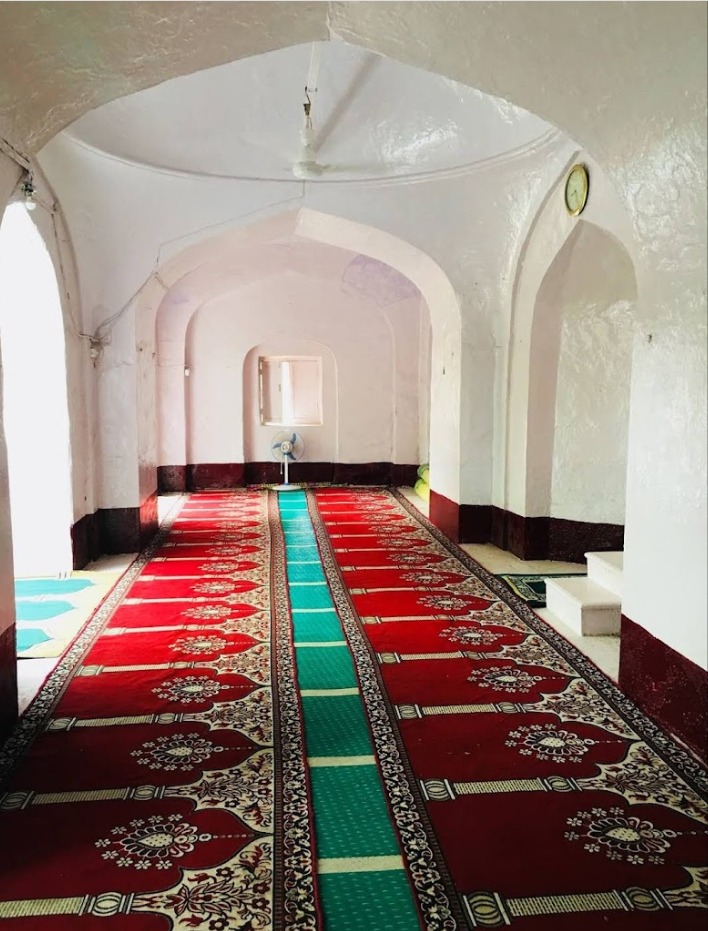
Syed Khalique Ahmed
NEW DELHI—While the disputes about Varanasi’s Gyanvapi Masjid and Mathura’s Shahi Idgah Masjid have reached the court, the Archaeological Survey of India (ASI) has abruptly shut the Mughal Mosque inside the Qutub Minar complex and banned ‘namaz’ or ‘Salah’ (Muslim prayer) inside the mosque from May 13.
The ASI is responsible for the maintenance of ancient monuments and archaeological sites of national importance. It is a government agency under the Ministry of Culture, Government of India.
Even though the Qutub Minar and the monuments within its complex are among the 40 world heritage sites in India, the prayers inside the Mughal Mosque were never banned.
While the Qutub Minar complex was granted world heritage status in 1993, ‘namaz’ was performed in the mosque ever since Independence under the supervision of the Delhi Wakf Board.
Maulana Sher Mohammed, who led the prayers in the mosque since his appointment by the wakf board on September 10, 1976, told this scribe that though radical elements from the majority community staged demonstrations outside the Qutub Minar complex on several occasions and for three days in a row in 1986, the performance of ‘namaz’ in the Mughal Mosque was never affected. The radicals from the majority community claim that the Qutub complex was a temple site and converted into a mosque during the Delhi Sultanate founded by Afghan ruler Mohammed Ghori.

“There was an Imam even before my appointment and he led five-time prayers, in addition to Friday prayers. Muslims prayed in this mosque ever before I joined in 1976,” says Imam Sher Mohammad. He was appointed at a monthly salary of Rs. 40 by the wakf board which has gone up to several thousand rupees now. Wakf board also made arrangements for everything required for prayers in the mosque, maintained the mosque, and also paid for electricity and water bills.
Imam said that it was on May 13, Friday, that he was called to the office of the ASI, Qutub Complex a little before 1 pm. “There were local ASI officials, besides some police officials from the local police station. I was told by ASI officials and the police personnel that prayers inside the mosque are not allowed now. When I argued that prayers have been going on in the mosque for several decades and that it should not be stopped, the officials told me that ban orders have come from seniors. When I asked ASI official Misbah Noori to allow at least Friday prayers today that was to be held at 1.30 pm, he expressed his inability to allow it saying ban orders have come from ‘above’, that is, from senior authorities.”

“When I left the ASI office, I was not allowed to go to the mosque, not even to collect my personal belongings in my ‘hujra’ (room for Imam in the mosque). When I came out of the ASI office, I was stunned to see a huge police force that was deployed outside the mosque, and those coming for ‘namaz’ were turned away,” he told this journalist.
“I offered my Friday prayers in another mosque, a few kilometres away,” said the Imam.
Imam alleged that a few days ago, policemen from the local police station had visited him several times and questioned him about the Friday prayer timing and the number of people who came to offer Friday prayers. They also put several other questions.
Read Also: Is ASI Preserving the Qutub Complex or Desecrating It?
He told the police that hardly 60 to 70 persons performed Friday prayers as there was no Muslim population nearby. “It is Muslims working in nearby private and government offices and the Muslim visitors to Qutub Minar who attended Friday prayers in the mosque,” said the Imam.
“A policeman sarcastically told me that he will allow 150 persons to pray from the next Friday,” Maulana Sher Mohammed said. “However, I could not understand at that time why did he say so,” said the Imam.
“Police had never visited the mosque in the past. They had never put such questions to me. They also did not inquire about the number of people coming for prayers and their identity,” he pointed out.
Among those who prayed in the mosque included Misbah Noori, an ASI official who looks after the maintenance of the Qutub Complex. When questioned over the phone about the reasons behind banning ‘namaz’ in the mosque, he said, “I am not authorized to speak.”
After he was removed from the mosque, the Imam met Okhla MLA Amanatullah Khan, chairman of the Delhi wakf board as well as other wakf officials. Khan told him that he would a file court case on behalf of the board in this connection.
The Imam also tried to meet India Islamic Cultural Centre (IICC) chairman Sirajuddin Qureshi to seek his help to restart the namaz in the Mughal Mosque. “Some people told me that Home Minister Amit Shah can get the mosque reopened. That is why I am trying to meet Qureshi who is said to be close to Amit Shah,” said the Imam. However, he was unable to meet Qureshi till the posting of this report.
Maulana Sher Mohammed also tried to meet Jama Masjid Imam Syed Ahmed Bukhari to seek his help but all in vain.
The court rejected Hindu party’s claim to pray inside the Qutub complex
In November 2021, a Delhi court rejected a petition seeking rights for Hindus and Jains to pray inside the Quwwatul Islam mosque. Thepetitioners had contended that the Quwwatul Islam mosque and Qutub complex were built on the debris of a Jain temple by Qutbuddin Aibak, an army general of Afghan ruler Mohammad Ghori, who had captured Delhi in the 12th century.




